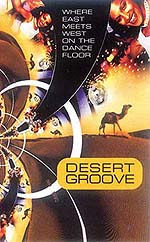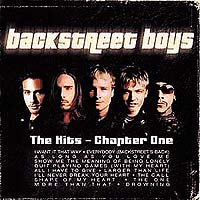Kylie Minogue — Fever
(Virgin Records) **
 Kylie’s Fever has
picked up from where she left with her last album Light Years. After
her previous dalliance with pop, indie, dance and rock, Fever is
essentially a spangly disco album. The well-crafted dance/disco pop
songs in Light Years like Your Disco Needs You or Disco Down
reappear in Fever in classic Kylie fashion. More, More, More
says her oozing sensuous vocals over funky beats, giving the album an
upbeat start. Can’t Get You Out Of My Heart has a 1980s’
feel to it. Kylie has managed to break this track into the charts,
something its writer Cathy Dennis never achieved with the original in
the mid ’90s. Tracks steering clear of raunch, like the title track Fever
and Love At First Sight use tempting lyrics and infectious
beats. The best thing about the album is that it is consistent: From
start to finish, the format varies very slightly. The thick bass line
and trances of ’70s’ funk/disco combined with modern techno beats
makes Fever possibly her best work.
Kylie’s Fever has
picked up from where she left with her last album Light Years. After
her previous dalliance with pop, indie, dance and rock, Fever is
essentially a spangly disco album. The well-crafted dance/disco pop
songs in Light Years like Your Disco Needs You or Disco Down
reappear in Fever in classic Kylie fashion. More, More, More
says her oozing sensuous vocals over funky beats, giving the album an
upbeat start. Can’t Get You Out Of My Heart has a 1980s’
feel to it. Kylie has managed to break this track into the charts,
something its writer Cathy Dennis never achieved with the original in
the mid ’90s. Tracks steering clear of raunch, like the title track Fever
and Love At First Sight use tempting lyrics and infectious
beats. The best thing about the album is that it is consistent: From
start to finish, the format varies very slightly. The thick bass line
and trances of ’70s’ funk/disco combined with modern techno beats
makes Fever possibly her best work.
Rammstein — Mutter
(Universal) * * *
 Formed in 1993, this
band has mixed industrial techno and omibassy vocals with ferocious
guitar riffs. Their name (an added ‘m’) comes from the location of
a German tragedy where 80 people were killed as the result of a crash
during an American Air Force flight show. ‘Ram Stein’ means
a battering ram made of stone. The band has released their third
studio album, which is a sonic-barn burner and will appeal to the
staunch industrial/goth listeners as much as it will to techno freaks
and headbangers. A sequel to their inexplicable commercial
breakthrough Sehnsucht, the album maintains the high-decibel angst
Rammstein is known for. Songs like Sonne and Zwitter
boast powerful choruses that you’ll hum later (even if you don’t
understand them, as every lyric in Mutter is in German). Never
could the German language be more brooding than when vocalist Till
Lindermann delivers his vocals. The string section that envelopes Mein
Herz Brennt is at once soothing and creepy, like the incidental
music score of some long-forgotten horror flick, while a kindergarten
chorus adds a touch of black humour to Spieluhr. Mutter has two
core strengths. The first is its raw and violent energy and second is
its unpredictability, which makes the listener glued to the music
system. Guitarists Richard Kruspe- Bernstein and Paul Lenders
demonstrate an increased understanding of post- Rob Zombie’s catchy
riffs. What makes this album a winner is the powerful songs like Ich
Will, Links 2,3,4 and Fruer Frei!, with heavy power
chords in the foreground and amazing keyboard-works by Flake Lorenz in
the background.
Formed in 1993, this
band has mixed industrial techno and omibassy vocals with ferocious
guitar riffs. Their name (an added ‘m’) comes from the location of
a German tragedy where 80 people were killed as the result of a crash
during an American Air Force flight show. ‘Ram Stein’ means
a battering ram made of stone. The band has released their third
studio album, which is a sonic-barn burner and will appeal to the
staunch industrial/goth listeners as much as it will to techno freaks
and headbangers. A sequel to their inexplicable commercial
breakthrough Sehnsucht, the album maintains the high-decibel angst
Rammstein is known for. Songs like Sonne and Zwitter
boast powerful choruses that you’ll hum later (even if you don’t
understand them, as every lyric in Mutter is in German). Never
could the German language be more brooding than when vocalist Till
Lindermann delivers his vocals. The string section that envelopes Mein
Herz Brennt is at once soothing and creepy, like the incidental
music score of some long-forgotten horror flick, while a kindergarten
chorus adds a touch of black humour to Spieluhr. Mutter has two
core strengths. The first is its raw and violent energy and second is
its unpredictability, which makes the listener glued to the music
system. Guitarists Richard Kruspe- Bernstein and Paul Lenders
demonstrate an increased understanding of post- Rob Zombie’s catchy
riffs. What makes this album a winner is the powerful songs like Ich
Will, Links 2,3,4 and Fruer Frei!, with heavy power
chords in the foreground and amazing keyboard-works by Flake Lorenz in
the background.
Impressive stuff,
even without a German-English dictionary.
Desert Groove
— Various Artists
(Sony Music) * * *
 Desert Groove is a
dazzling blend of East-meets-West instrumentation and sensibilities;
male/female vocals and chants, tablas and other indigenous world
percussion, didgeridoo, nature sounds and various moods that are
intricately melded into a provocative cultural statement. The use of
multi-tracking adds new dimensions and textures on Return Of The
Shankar by Krome Assasins and Mama by Soul El Atlas. Even
more into the technological frontier is Afro Felt by Leftfield,
where the composer generates a wholly electronic landscape of keyboard
sounds and sampled voices. Sting’s dynamic vocal chords, merged with
an Arabian chorus gives the complex textures of Desert Rose a
rhythmic lift. The headliners here include Didi by Khaled, Alabina
(Mike Peta Edit) by Alabina, Yeke Yeke by Mory Kante and Yalla
performed by Andy. Each dance-floor filler here represents not a
plundering of foreign ideas but a regeneration of culture, an
extension of its identity rather than a static sampling.
Desert Groove is a
dazzling blend of East-meets-West instrumentation and sensibilities;
male/female vocals and chants, tablas and other indigenous world
percussion, didgeridoo, nature sounds and various moods that are
intricately melded into a provocative cultural statement. The use of
multi-tracking adds new dimensions and textures on Return Of The
Shankar by Krome Assasins and Mama by Soul El Atlas. Even
more into the technological frontier is Afro Felt by Leftfield,
where the composer generates a wholly electronic landscape of keyboard
sounds and sampled voices. Sting’s dynamic vocal chords, merged with
an Arabian chorus gives the complex textures of Desert Rose a
rhythmic lift. The headliners here include Didi by Khaled, Alabina
(Mike Peta Edit) by Alabina, Yeke Yeke by Mory Kante and Yalla
performed by Andy. Each dance-floor filler here represents not a
plundering of foreign ideas but a regeneration of culture, an
extension of its identity rather than a static sampling.
Album of the month
Backstreet Boys —
Greatest Hits: Chapter One
(HMV)
 The Backstreet Boys
were by far the best and the first of the teen boy bands of the late
’90s/early 2000s, even if ‘N Sync eventually took the title of
"the biggest boy band". Before the ‘N Sync, O-Town or
Westlife, the Backstreet Boys ruled every single pop chart on earth.
By sticking rigidly to long-term writer/producer Max Martin’s
unbeatable formula of emotive ballads and slamming choruses, they’ve
sold over 65 million albums and stayed at the top longer than the
trendsetters Take That or Spice Girls. So what better way to celebrate
their excellent track record (having received an RIAA Diamond Award
for their first two album releases; a status that less than 70 albums
in history have achieved and earning 8x Platinum certification in
2000) than to release a greatest hits package loaded with pop anthems.
The Hits: Chapter One is a one-stop shopping for the band’s three
American Albums — their 1997 self-titled debut, 1999’s Millennium
and 2000’s Black & Blue. Their sweeping mid-tempo ballads were
obviously their trademark and there are plenty of those — As Long
As You Love Me, Show Me The Meaning Of Being Lonely, Quit
Playing Games (With My Heart) and I Want It That Way. The
Call has a deliciously frenzied urgency and a strong danceable
beat. Everybody (Backstreet’s Back) and Larger Than Life
are infectious pop tracks. The collection also features an all-new
song Drowning, sure to take its place on the long list of
Backstreet Boys’ hits.
The Backstreet Boys
were by far the best and the first of the teen boy bands of the late
’90s/early 2000s, even if ‘N Sync eventually took the title of
"the biggest boy band". Before the ‘N Sync, O-Town or
Westlife, the Backstreet Boys ruled every single pop chart on earth.
By sticking rigidly to long-term writer/producer Max Martin’s
unbeatable formula of emotive ballads and slamming choruses, they’ve
sold over 65 million albums and stayed at the top longer than the
trendsetters Take That or Spice Girls. So what better way to celebrate
their excellent track record (having received an RIAA Diamond Award
for their first two album releases; a status that less than 70 albums
in history have achieved and earning 8x Platinum certification in
2000) than to release a greatest hits package loaded with pop anthems.
The Hits: Chapter One is a one-stop shopping for the band’s three
American Albums — their 1997 self-titled debut, 1999’s Millennium
and 2000’s Black & Blue. Their sweeping mid-tempo ballads were
obviously their trademark and there are plenty of those — As Long
As You Love Me, Show Me The Meaning Of Being Lonely, Quit
Playing Games (With My Heart) and I Want It That Way. The
Call has a deliciously frenzied urgency and a strong danceable
beat. Everybody (Backstreet’s Back) and Larger Than Life
are infectious pop tracks. The collection also features an all-new
song Drowning, sure to take its place on the long list of
Backstreet Boys’ hits.
A well-crafted album
with some of the best mainstream pop moments of its time — reason
enough for every pop lover to have this as a part of their music
library.
— Saurabh
& Gaurav

